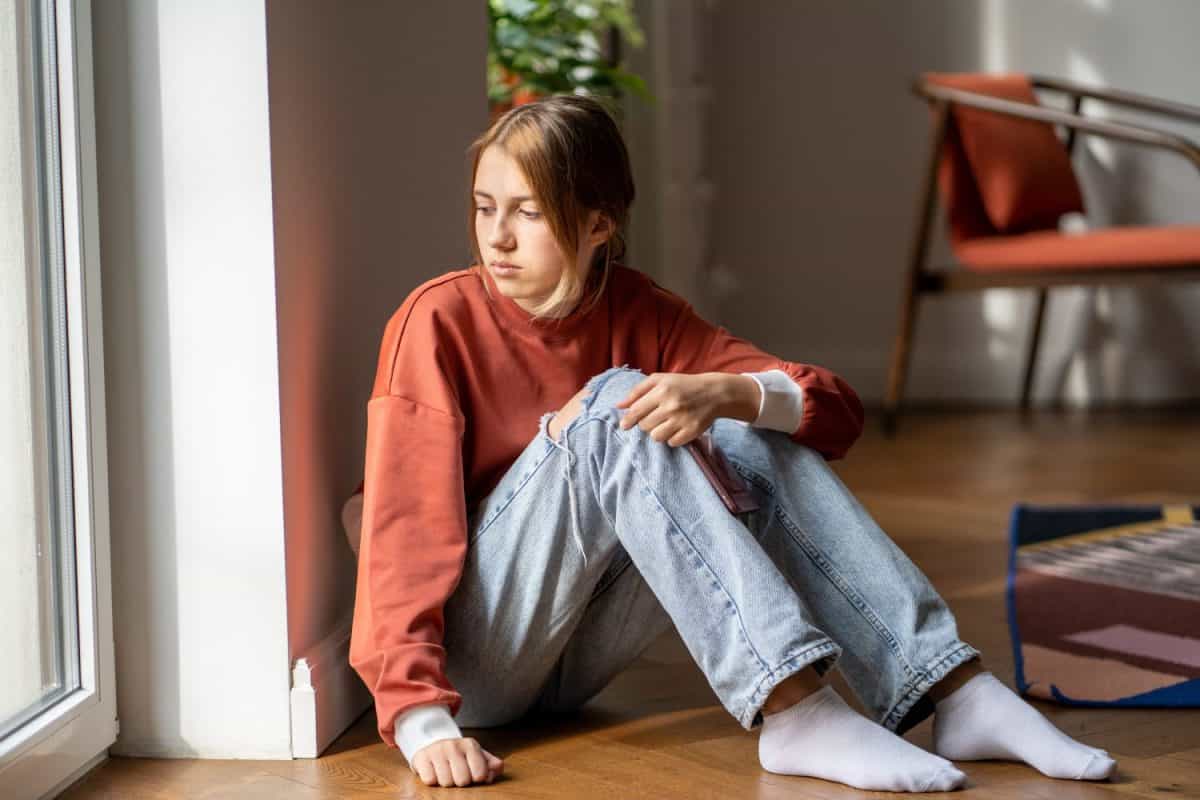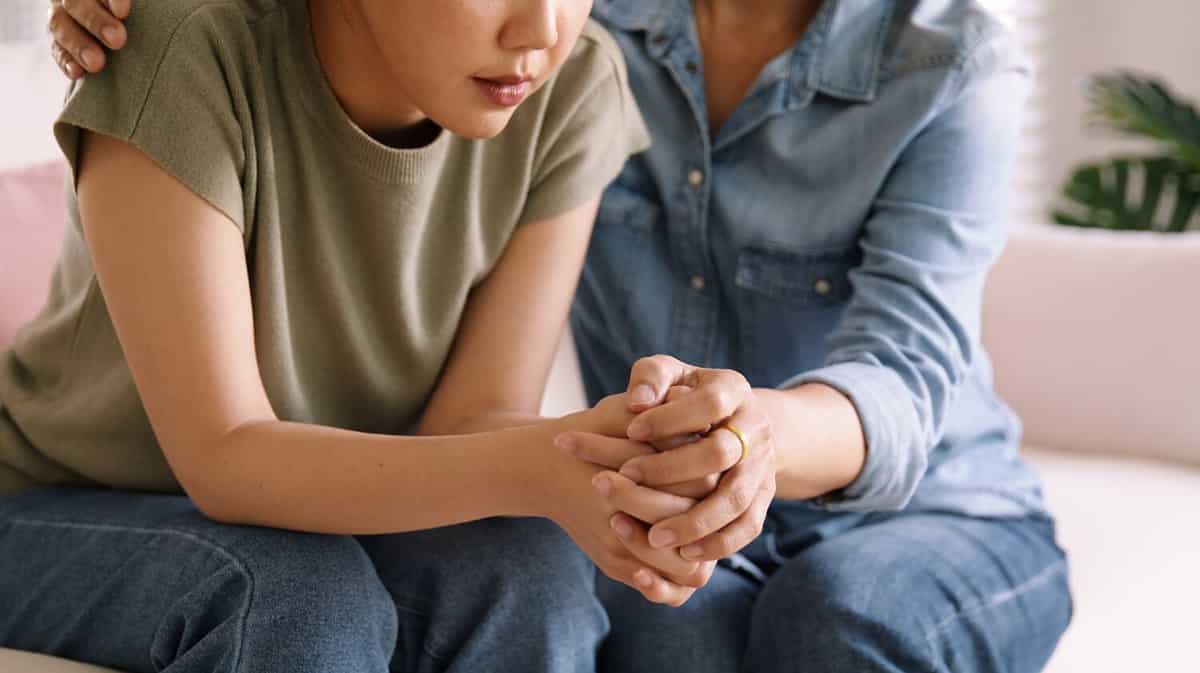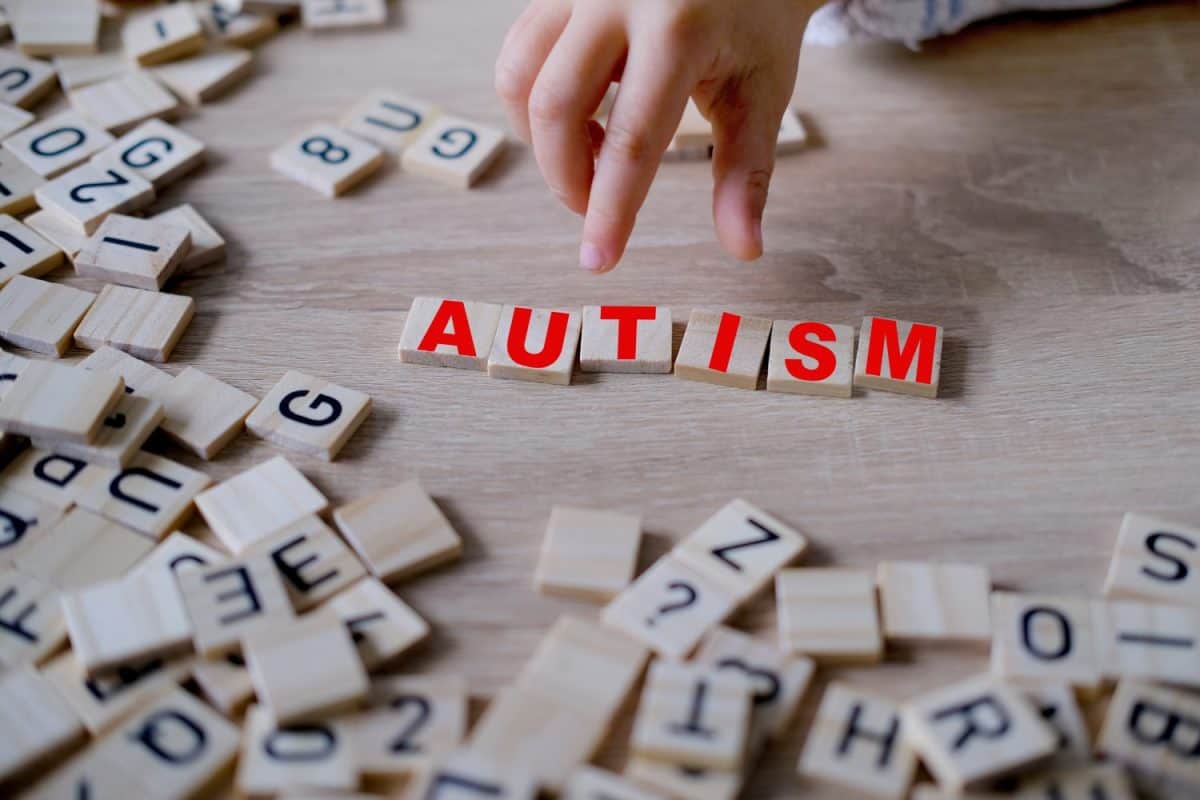Most children outgrow diapers by the time they're 3 or 4, but sometimes, extended diaper-wearing might be necessary for various medical reasons. In one case, a desperate mom was advised to put her 13-year-old child in diapers due to a random bout of incontinence — and it’s not as uncommon as you might think!
One mom took to Reddit to share that her 13-year-old son has random bouts of incontinence. “He's completely fine, and then out of nowhere, he'll lose almost all semblance of bladder control, and has been getting increasingly worse as he's getting older,” the frustrated mom writes.
After taking him to several different pediatricians and urologists, she was left frustrated by the experts telling her there was nothing wrong with her son.
“He’s almost fourteen. He can’t go to school wearing a f—ing diaper,” she writes. She added that her son has autism and ADHD and feels like doctors have written him off because of that.
We can’t imagine how hard and frustrating that would be for her and her teen. In the comments, people were helpful. One person suggested they track and document all the bouts of incontinence to see if there is a pattern. “It may not be as ‘random’ as it appears. There may be outside factors unrelated to anything physically that are triggering this,” they wrote.
Another parent said they have a 12-year-old with incontinence issues due to constipation.
It turns out, there are many different reasons a child or teen could develop incontinence — and luckily, they are treatable.
Medical Reasons for Incontinence

The two most common causes of incontinence are a UTI or constipation.
©DimaBerlin/Shutterstock.com
Medical issues can contribute to incontinence in kids and teens. “The most common causes are a urinary tract infection (UTI) and constipation, whether behavioral or medically caused,” says Karen Klawitter, M.D., board-certified pediatrician based in Florida and contributor to Just Answer. She adds that other conditions that could cause incontinence include new onset or poorly controlled diabetes.
“Puberty and hormonal issues can also lead to incontinence, especially if there is a delay in puberty,” Dr. Klawitter says. “This can affect normal bladder function.”
Anxiety & Stress Can Contribute

Sometimes, kids who are anxious or stressed can experience incontinence.
©Chay_Tee/Shutterstock.com
Stress and anxiety could contribute to bouts of incontinence in kids and teens, according to Dr. Klawitter. She explains, “Teens have many things to be stressed out about — friends and family issues top the list.”
Additionally, fear over using the bathroom could cause problems. “Some teens at this age also have anxiety about using public bathrooms (this is more common than constipation issues: fear of pooping at school),” Dr. Klawitter says. “But if they fear using the bathroom, they may have urine accidents due to an overfilled bladder.”
Of course, having a public accident at school is only going to increase their stress and anxiety, which could exacerbate the problem further.
“A 13-year-old is on a rollercoaster of emotions and stresses that can cause occasional accidents,” Dr. Klawitter adds.
Developmental Disorders May Be a Factor

If your child has autism, ADHD, or other sensory problems, they may be more likely to have incontinence.
©Kittyfly/Shutterstock.com
Some teens may struggle with holding in their urine or bowel movements due to developmental disorders, including sensory problems, autism, and ADHD. This could be a combination of behavioral issues and struggles with executive function, according to Dr. Klawitter.
“With ADHD, these kids can't focus well, and do not attend to the bladder cues that signal that they have to urinate,” she says. “With kids with autism, they often have sensory processing issues, and, therefore, are unable to recognize that they have to urinate.”
Often, developmental disorders like ADHD and autism can cause sleep disorders, which in turn can lead to bathroom accidents (even during the day).
Additional Reasons Your Teen Might Struggle With Incontinence

Watch out for other factors that could cause incontinence, like drinking too much soda.
©OlegDoroshin/Shutterstock.com
Other factors could contribute to a teen’s sudden struggle with incontinence. Dr. Klawitter says that it can be a sign of trauma or sexual abuse, which can cause both psychological and physical symptoms that might explain incontinence. For example, post-traumatic stress disorder (PTSD), damage to the genital area, or a consequence of a sexually transmitted infection (STI).
Other, simpler reasons for incontinence could be directly related to your child’s habits.
“Some teens can just have an overactive bladder, or just not empty their bladder completely, leading to leakage and accidents,” Dr. Klawitter says. “Some drinks, like caffeinated sodas, can also cause increased urination, which can lead to accidents. And lastly, nocturnal enuresis (i.e., bedwetting) can be caused by sleep disorders.”
How Can Parents Help Their Teens?

Contact your teen's pediatrician if they are experiencing incontinence.
©S_L/Shutterstock.com
If your formerly potty-trained child or teenager is suddenly experiencing bouts of incontinence, you should contact your child’s pediatrician right away. They may recommend a visit with a urologist to determine the possible cause and recommend treatment. Dr. Klawitter says this may include a physical exam, blood and urine tests, x-rays of the abdomen, an ultrasound of the kidneys and bladder, or a cystoscopy to evaluate the bladder. The doctor may also ask for a urination diary.
“Treatment of underlying causes depends on the reason for incontinence,” Dr. Klawitter explains. “For example, treating a UTI with antibiotics, treating constipation with stool softeners, or treating diabetes with insulin. There are also medications to treat overactive bladder as well as bedwetting.”
She continues, “If related to delayed puberty, an endocrinologist may help to assess hormone issues. Kegel exercises can help with pelvic floor muscles, which aids in bladder control. Bladder training (holding your urine for longer periods) helps to expand the bladder muscle and helps with bladder control. Behavior and psychological therapies can help with stresses, PTSD, and sexual abuse causes for incontinence.”
The most important thing as a parent is to be there for your child through this difficult and embarrassing issue. “Listen and support your teen,” Dr. Klawitter encourages parents. “This is a tough subject for them to deal with, especially at this age. Self-esteem can take a hit for sure.”
The image featured at the top of this post is ©Vladeep/Shutterstock.com
